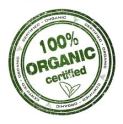 Five years ago, someone suggested that I read Marion Nestle’s What to Eat. The definitive book on just what its title suggests, written by a professor of nutrition. I immediately went out and bought it, but never read it. Perhaps I’ve been afraid of what I might find out. I don’t want to be one of those people who can’t go out to dinner with friends because I’m so picky about what I’m willing to eat. I felt the same way about watching the documentary Food Inc., but to my surprise, it merely enforced what I already knew and validated my day-to-day decisions to spend more money to purchase organic produce, traditionally farm-raised and grass fed meat, and it reminded me that I really shouldn’t ever eat at McDonald’s – even once a year on a road trip.
Five years ago, someone suggested that I read Marion Nestle’s What to Eat. The definitive book on just what its title suggests, written by a professor of nutrition. I immediately went out and bought it, but never read it. Perhaps I’ve been afraid of what I might find out. I don’t want to be one of those people who can’t go out to dinner with friends because I’m so picky about what I’m willing to eat. I felt the same way about watching the documentary Food Inc., but to my surprise, it merely enforced what I already knew and validated my day-to-day decisions to spend more money to purchase organic produce, traditionally farm-raised and grass fed meat, and it reminded me that I really shouldn’t ever eat at McDonald’s – even once a year on a road trip.
True the 524-page count probably has something to do with why I haven’t read the book. This is no quick blurb from Women’s Health about the latest superfood to incorporate into your diet or toxic ingredient to avoid. I have pulled it out many times, started reading and have yet to get past the introduction.
Life is overwhelming enough and figuring out what to eat, what not to eat, and then making choices accordingly seems to add just one more “to-do.” But when I read about what’s in my food, or watch a documentary like Food Inc., it reminds me that, while I can’t control all of the poison in my environment, I can control the food I put in my mouth. It’s been a commitment that I’ve struggled with. It doesn’t help of course that my day job leaves me too drained to cook dinner or pack myself a healthy lunch. I resort to a promise only to eat Amy’s brand organic frozen meals.
In Richard O’Connor’s book Undoing Perpetual Stress, he suggests that one way to help alleviate the constant overwhelming stress many of us feel every day is to take care of ourselves – exercise, get enough sleep, and eat well. You can’t control whether your boss is an asshole or whether your child gets a cold, but if you can figure out a way to fit in these three essentials, you will regain a sense of control, your brain will slow its cortisol production, and you might be able to reduce the stress of coping with your daily life.
A desire to eat organic food and meat from cows that weren’t stuffed with corn and antibiotics before they were scarified to meet my nutritional needs is about more than wanting nourishing healthful food that doesn’t increase my body’s resistance to life-saving antibiotics. It’s a reflection of my need for a more nourishing healthful life.
Starting with food is more than just a metaphor. Research is starting to show that what we eat affects our mental health. Cutting down on processed sugar may mean lowering your chances of developing Alzheimer’s and reducing depression.
Experts on just about every subject will tell you that if you want to change your habits – whether it be eating habits, spending habits, exercise habits, dating habits, etc. – writing down your behaviors, your goals, and your feelings about both increases your chance of success because you hold yourself accountable when you write it down. Hence, GrasfedLA.
